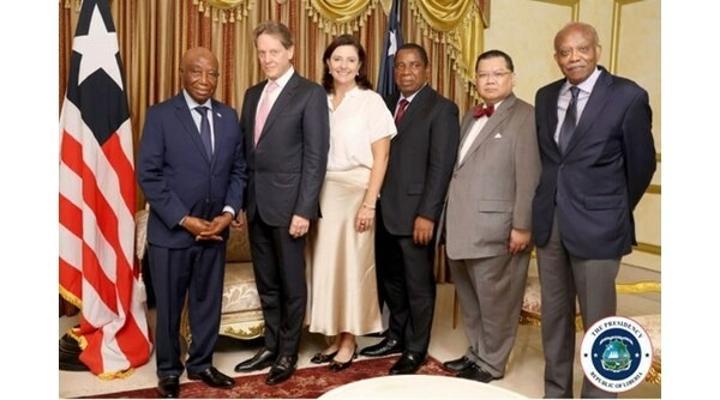Africa-Press – Liberia. Concerns are growing over whether Liberia followed proper legal procedures in signing the Concession and Access Agreement (CAA) with Ivanhoe Liberia, a subsidiary of HPX/SMFG, for the use of its rail and port infrastructure. Analysts say the deal appears to sidestep the 2019 Liberia–Guinea Implementation Agreement, which was designed to regulate cross-border mining access and safeguard both nations’ interests.
The 2019 Implementation Agreement was hailed as a milestone for regional cooperation. It set clear rules for how Guinean mining operators could access Liberian transport corridors. The accord established a two-step approval process, requiring review by a joint Monitoring Committee and final endorsement by the Inter-Ministerial Committees of both countries.
However, according to legal observers and documents reviewed by this paper, there is no public evidence that these steps were followed before the CAA was signed. No minutes or reports from the joint committees have been released, and Guinea has not formally approved the Ivanhoe project as an “Approved Infrastructure Project” under the agreement.
Instead, the CAA appears to have been negotiated directly between the Liberian government and Ivanhoe Liberia, raising concerns that the process may have bypassed the bilateral oversight mechanisms meant to ensure transparency and fairness.
Critics say the CAA also deviates from key harmonization provisions of the Implementation Agreement. Articles 4 and 8 of the 2019 framework require both countries to align their customs, access fees, and safety standards to avoid discriminatory practices. Yet, the CAA reportedly sets its own fees, tax regime, and operational terms, independent of Guinea’s input.
“The Implementation Agreement was not ceremonial, it was the rulebook,” one policy expert familiar with the negotiations noted. “By ignoring its procedures, Liberia risks undermining its credibility and the very cooperation it sought to build.”
The deal’s structure has further drawn scrutiny for being a bespoke arrangement rather than one based on a standardized access template mandated by the Implementation Agreement. This template was intended to ensure all operators were treated equally under common legal and environmental standards.
Analysts warn that by granting Ivanhoe extensive rights, including access of up to 30 million tonnes per year and long-term tenure of up to 40 years, Liberia may have violated Article 3.3 of the bilateral agreement, which forbids either country from taking unilateral actions that diminish the agreement’s effect.
Observers say the controversy is more than a legal technicality. “Procedural compliance is how Liberia protects its sovereignty and ensures fair value for its national assets,” a governance advocate explained. “By overlooking these safeguards, the government risks disputes and diplomatic friction with Guinea.”
While the CAA promises economic benefits such as transit fees and community development funding, experts caution that such gains could be overshadowed if the agreement is deemed inconsistent with Liberia’s existing international commitments.
In conclusion, questions remain about whether the CAA can withstand scrutiny under the 2019 Implementation Agreement. Stakeholders are calling on the Liberian government to pause implementation, review the process, and align the deal with the established bilateral framework, a move they say would preserve both legality and regional trust.
Source: Liberia news The New Dawn Liberia
For More News And Analysis About Liberia Follow Africa-Press






